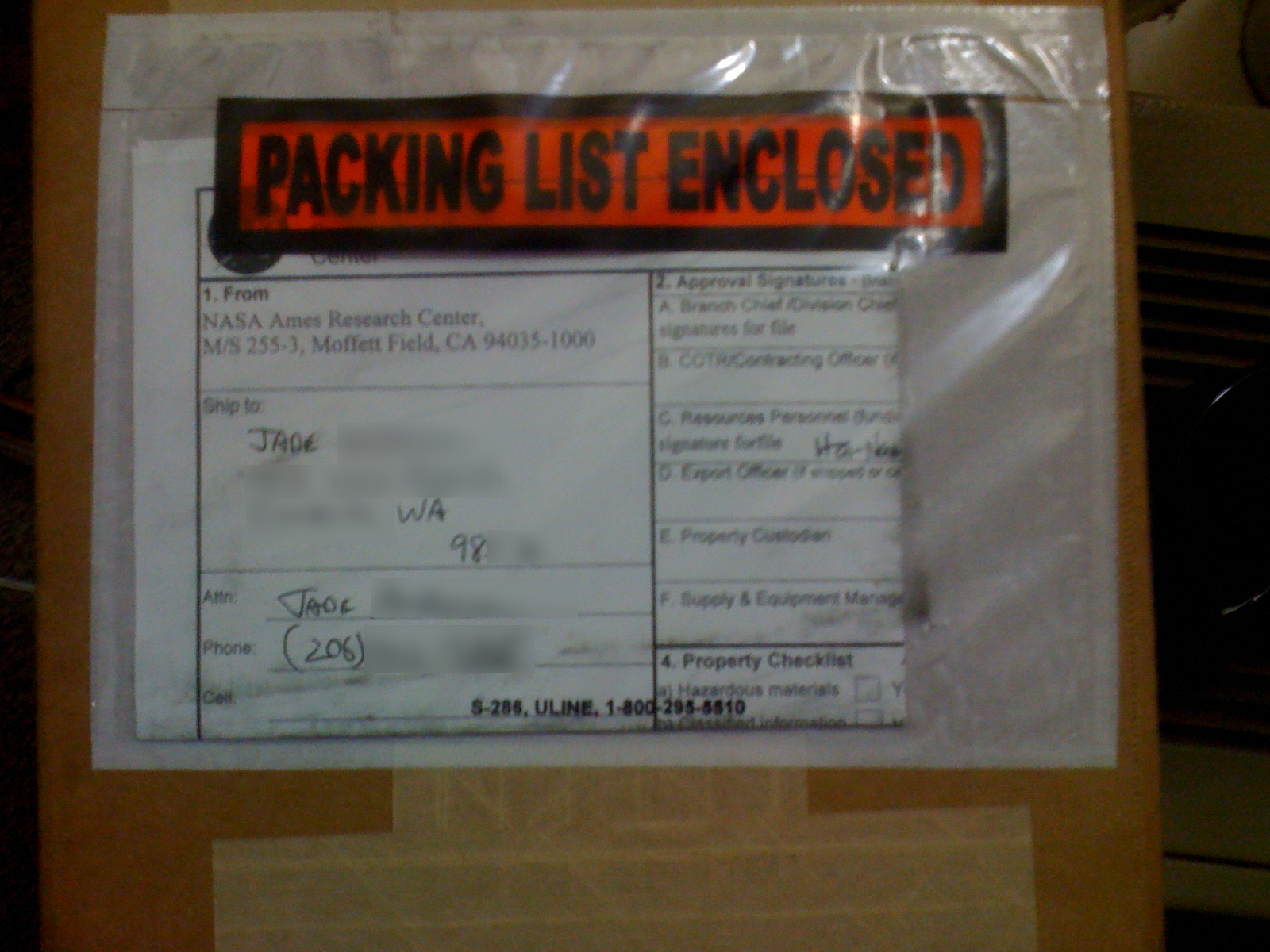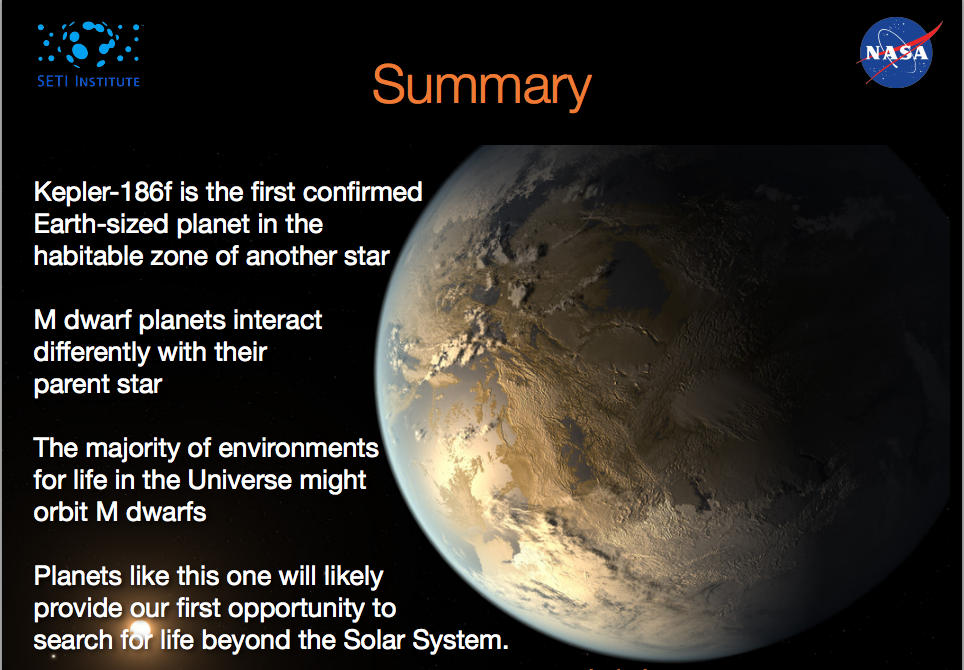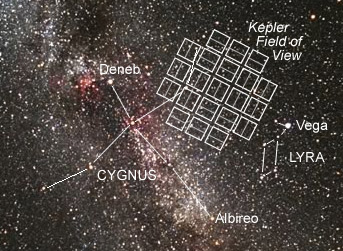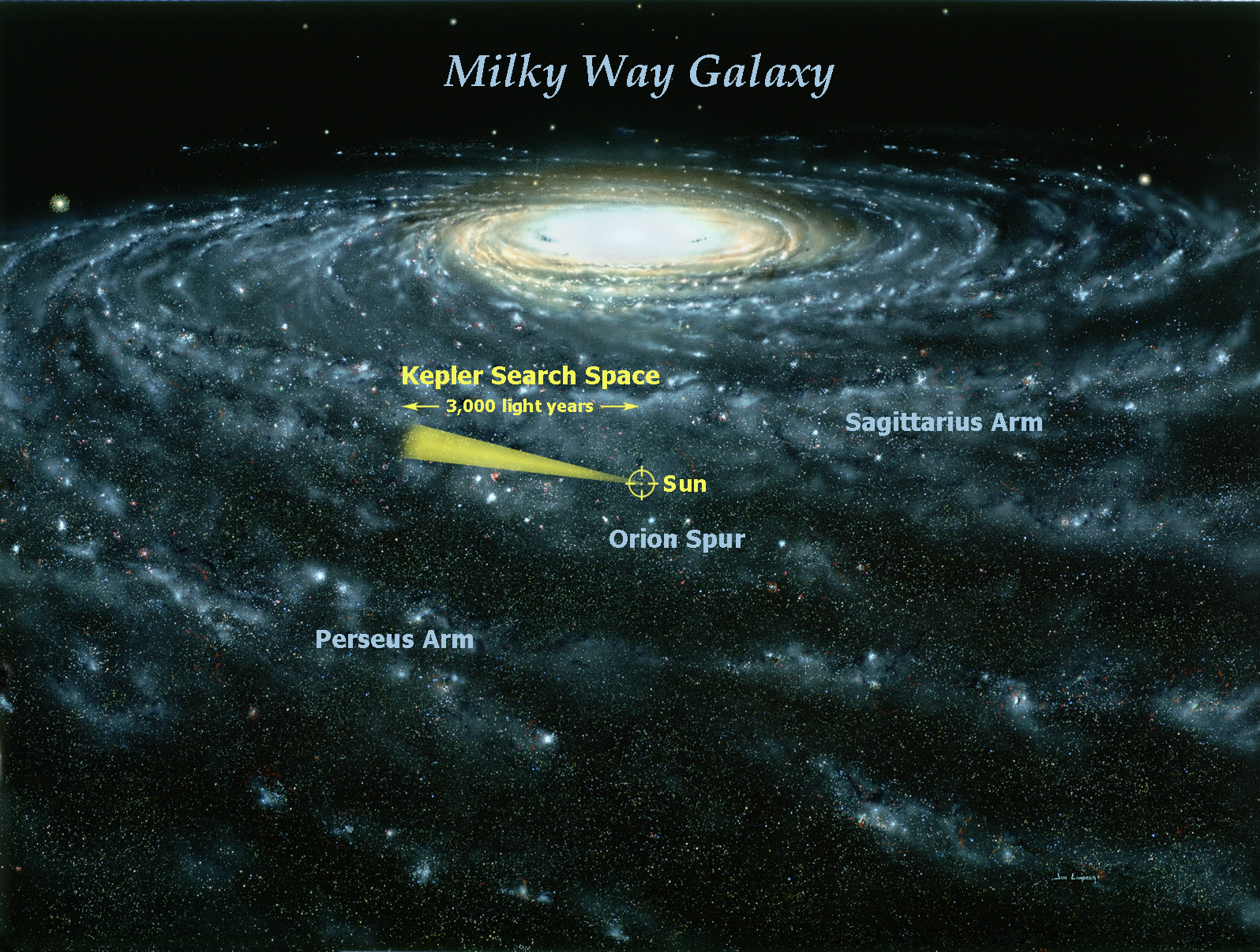It looks like you're using an Ad Blocker.
Please white-list or disable AboveTopSecret.com in your ad-blocking tool.
Thank you.
Some features of ATS will be disabled while you continue to use an ad-blocker.
share:
originally posted by: DrGreenThumb
This is my first post here, I just love reading basically what others have wrote. Since it seems like we have the tech to find other earths, do we have the tech to hide our earth from them? If a civ, even a few hundred more years advanced than ours showed up at our earth we would be in trouble if they were hostile. So is their anyway possible to hide us from them while still exploring for other planets like ours? We have a lot of problems here but we are very young in terms of the galactic scale of time, children always do make mistakes before they know better.
Can we hide from others looking for us or no? I know they can eventually hear our radio signals but would they be able to pin point us without triangulation? Can we hide from more advanced telescopes?
I think after seeing the first transmissions of I Love Lucy, they will quarantine our sector and avoid it like Ebola.
originally posted by: Kratos40
Could we communicate by laser or by bending space-time? Previosly I was thinking quantum entanglement, but nevermind.
Lasers travel the same speed as radio. 186,000 kilometers per second. The speed of light.
In order to use quantum entanglement as a form of communication, information about the state of the entangled particles would need to be sent. That information can not be sent faster than light so no advantage there even if it were a viable communication method (which most signs point away from it every being such).
Bending space and time would be a neat trick and would do what you want. But we're likely centuries away from doing it on a grand scale, if we can do it at all.
That's cool, except that I authored a thread on this last month
www.abovetopsecret.com...
Also, It's not the "FIRST" Earth-Sized planet (nor is it an Earth "Twin").
C'mon now, It's even in your source article that It's not a, quote "Earth twin."
Did you even read your own source?
Or did you just want it to say that because it sounds more exciting even though It's untrue.
In fact, they don't even know this new planet's composition. Just the mass.
The title is misleading which why I titled mine "NEW" Earth-Sized planet -- Which is accurate.
They are dubbing it the first since it's now, currently, the closest one to the size of Earth 'since' the discovery of Kepler 62f, which was 1.4 times the size of Earth as opposed to this "NEW" planet being only 1.1. making it the new and current runner-up from the last one.
So, yeah.
www.abovetopsecret.com...
Also, It's not the "FIRST" Earth-Sized planet (nor is it an Earth "Twin").
"Kepler-186f can be thought of as an Earth-cousin rather than an Earth-twin. It has many properties that resemble Earth."
C'mon now, It's even in your source article that It's not a, quote "Earth twin."
Did you even read your own source?
Or did you just want it to say that because it sounds more exciting even though It's untrue.
In fact, they don't even know this new planet's composition. Just the mass.
The title is misleading which why I titled mine "NEW" Earth-Sized planet -- Which is accurate.
They are dubbing it the first since it's now, currently, the closest one to the size of Earth 'since' the discovery of Kepler 62f, which was 1.4 times the size of Earth as opposed to this "NEW" planet being only 1.1. making it the new and current runner-up from the last one.
So, yeah.
edit on 4/18/2014 by unb3k44n7 because: (no reason given)
So if the nearest likely candidate is likely 6-10 lightyears away why are they looking at stars/planets 500 light years away? Wouldn't it make more
sense to start with the closest and work your way outward? Ah there's probably some stupid sciencey reason...
Edit- I don't want to get in trouble for being silly again... I apologize.
edit on 4/18/2014 by 3n19m470 because: (no reason given)
Saw this o skynews earlier. Great!
I reckon 'Life' as in other forms of 'Humans' or even 'Alien' looking Beings definately exist out there and they have been monitoring us for many many years!
I reckon 'Life' as in other forms of 'Humans' or even 'Alien' looking Beings definately exist out there and they have been monitoring us for many many years!
originally posted by: grey580
I knew this was going to happen.
That secret government space fleet we have has probably already been to that planet and confirmed that it's habitable and safe.
I'll bet you guys a dollar that within the year someone will "invent" a propulsion system that will get us there quickly and open up exploitation of the planets resources.
It will be some interesting times.
And may not be far away from the truth if what Mckinnon says he saw is truth and I have no reason to doubt him!
The strange UFO craft we see and their amazing capabilities would suggest the are also space fairing1
originally posted by: Blue Shift
The telescope is so good, they actually have a close-up of the planet's surface!
[/quote:] hahaha...what about gas stations and saloons?
originally posted by: unb3k44n7
That's cool, except that I authored a thread on this last month
www.abovetopsecret.com...
Also, It's not the "FIRST" Earth-Sized planet (nor is it an Earth "Twin").
"Kepler-186f can be thought of as an Earth-cousin rather than an Earth-twin. It has many properties that resemble Earth."
C'mon now, It's even in your source article that It's not a, quote "Earth twin."
Did you even read your own source?
Or did you just want it to say that because it sounds more exciting even though It's untrue.
In fact, they don't even know this new planet's composition. Just the mass.
The title is misleading which why I titled mine "NEW" Earth-Sized planet -- Which is accurate.
They are dubbing it the first since it's now, currently, the closest one to the size of Earth 'since' the discovery of Kepler 62f, which was 1.4 times the size of Earth as opposed to this "NEW" planet being only 1.1. making it the new and current runner-up from the last one.
So, yeah.
1. I read your post and it is full of errors and misunderstandings of basic stuff.
2. I am an astronomy/astrobiology student (undergrad). This is my field of study at the University of Washington and I know some of the people involved in exoplanet research there as they're like my professors. I have done a summer internship at NASA Ames with some people from the Kepler mission and will be going back to NASA Ames this summer.

Even have the coffee mug to show for it:

3. Of course it is not the first Earth sized planet. It's significant because its the FIRST EARTH SIZED PLANET IN A HABITABLE ZONE OF THE STAR IT ORBITS. It helps to read titles. There has not been a confirmed planet this size in a habitable zone until yesterday. There have been planet candidates and if you actually followed my posts you'd see I posted a whole list of them here well before your post. See: Most Earthlike Planet Candidates to Date Revealed by NASA in Latest Kepler Data Release - See more at: www.abovetopsecret.com.... Note the date. It is WELL before your error full post last month.
4. If you have been on ATS for awhile you'll know I've contributed a great deal to the discussion of exoplanets and you know, actual work in the field as an undergrad. One of the things I am doing is helping to characterize exozodiacal dust clouds using the 2.4 meter UKIST telescope in Australia. This characterization will be necessary if we are ever to be successful in using space based interferometers to take detailed pictures of other habitable zone, terrestrial planets. SEE: "ExoEarth Mapper" and "Terrestrial Planet Finder".
5. Kepler 62f is 1.4 Earth Radii which if you know ANYTHING about exoplanets, puts it in the category of SuperEarth not Terrestrial. Studies show that around 1.3-1.5 Earth Radii a planet can begin to have a thick helium atmosphere like that of the gas giants of our solar system so Kepler 62f while very interesting could be a rocky planet like the Earth OR a mini-Neptune. That's why the discovery yesterday of Kepler 186f is important. It's the first planet that is Earth sized (rather than SuperEarth sized) in a habitable zone. Beyond 1.25 Earth Radii a planet can go either way. At 1.4 Earth Radii Kepler 62f could very well be a Mini Neptune rather than an Earth Cousin. 1.5 Earth Radii seems to be the point of no return and Kepler 62f is pretty damn close to that. Meanwhile, Kepler 186f at a mere 1.1 Earth radii planet is almost certainly a little rocky world like our own rather than a gaseous Neptune-like world.
6. Regarding the terms Earth Twin, as I said earlier in this thread (Dare you actually read it in full) there are two definitions of "Earth Analog" or "Earth Twin". The oldest is simply a terrestrial planet in the habitable zone of a star. The more strict definition is a terrestrial sized planet in the habitable zone of a star like our Sun. Since Kepler 186f orbits an M-Dwarf rather than a G-Dwarf like our sun they called it an Earth Cousin during the conference call. If you take issue with my title then you should take issue with Lalande, Gatewood, et all who coined the original "Earth Twin" definition. That said, there are plenty of "Earth Twin" candidates, some of which may be confirmed and announced over the next 9 months.
7. And this is most important: This is not a pissing contest. I'm a girl and I typically don't do pissing contests.
So yeah.
In conclusion I leave you with this slide which sums up why this discovery was important since it was clearly lost on you:

That's ok, I'm here for any questions you might have.
edit on 18-4-2014 by JadeStar because: (no reason given)
edit
on 18-4-2014 by JadeStar because: (no reason given)
Though a new planet discovery is exciting and fascinating at the same time, I can't help but feel this would not be the case if we had taken care of
our own, that the fantasy of living upon another planet is directly related to the dwindling conditions here at home. I only hope if indeed we do
travel afar that we have learned from our mistakes.
Peace
Human out.
Peace
Human out.
originally posted by: all2human
Though a new planet discovery is exciting and fascinating at the same time, I can't help but feel this would not be the case if we had taken care of our own, that the fantasy of living upon another planet is directly related to the dwindling conditions here at home. I only hope if indeed we do travel afar that we have learned from our mistakes.
Peace
Human out.
I disagree. The interest in the possibility of other worlds, other life and potentially other civilization is something which predates modernity.
Unless you think the Greeks and Egyptians ruined the planet....
This is a deeply human need to know our place within the cosmos and has nothing to do with any fantasy of wanting to live there. We want to know how we got here, are we alone, and if we aren't alone then what and who else might be out there.
Until yesterday we knew of only one confirmed planet the size of the Earth in a habitable zone of a star. Our own.
edit on 18-4-2014 by
JadeStar because: (no reason given)
I agree though If we are truly interested in life, why should must we assume or rather prefer it be habitibal to humans
"life" can/would flourish under different conditions.
Our place in the cosmos is here
"life" can/would flourish under different conditions.
Our place in the cosmos is here
edit on 18-4-2014 by all2human because: (no reason given)
originally posted by: all2human
I agree though If we are truly interested in life, why should must we assume or rather prefer it be habitibal to humans
"life" can/would flourish under different conditions.
Our place in the cosmos is here
When we astronomers or astrobiologists talk about habitability it simply means "place where water can exist as a liquid".
This has nothing to do with a place being habitable to us. There are plenty of places on Earth that are habitable by this definition that we couldn't easily live but where other life can (like the bottom of the oceans or inside a glacier.)
And while life can flourish under different conditions, we know of no life which can exist without liquid water at some point. Even the stuff we find in the desert uses liquid water (it just stores it up and holds on to it a long time).
We're interested in finding other life so it makes sense to look for places it might thrive.
edit on 18-4-2014 by JadeStar because: (no reason
given)
Yes but unless i'm mistaken the thread is about a "habitable" zone which leads me to my initial post and query
Quote from the OP article: "The discovery of Kepler-186f is a significant step toward finding worlds like our planet Earth," "Kepler-186f can be thought of as an Earth-cousin rather than an Earth-twin. It has many properties that resemble Earth."
So in this case the motivation to discover a 'habitable" planet with similar traits seems to be more in-line with possible future colonization no?
Quote from the OP article: "The discovery of Kepler-186f is a significant step toward finding worlds like our planet Earth," "Kepler-186f can be thought of as an Earth-cousin rather than an Earth-twin. It has many properties that resemble Earth."
So in this case the motivation to discover a 'habitable" planet with similar traits seems to be more in-line with possible future colonization no?
edit on 18-4-2014 by all2human because: (no reason given)
originally posted by: all2human
Yes but the thread is about a "habitable" zone which leads me to my initial post and query
Right but like I said, the Habitable Zone is usually defined as a the area around a star where liquid water can exist on the surface of a planet.
Nothing more than that usually.
originally posted by: 3n19m470
So if the nearest likely candidate is likely 6-10 lightyears away why are they looking at stars/planets 500 light years away?
Kepler's primary mission was to learn how prevalent different types of planets are in our galaxy specifically terrestrial planets. Kepler looked at a field of stars in which were a good representation of the stars in our galaxy. So in order to get good statistics which could be applied to the rest of our Milky Way galaxy Kepler looked at this field of 100,000 stars:


That field is representative of the types and numbers of different stars in our galaxy.
Wouldn't it make more sense to start with the closest and work your way outward?
Not for a census, which is what Kepler was. Remember prior to Kepler we didn't know of any terrestrial sized planets around other stars. (other than some bizarre ones around a pulsar).
So Kepler proved they were out there now we can look closer to home.
Now if you are interested in what that mission is, its called TESS and it will launch in 2017. It will look at alll the nearest stars for transiting planets which can then be studied in greater detail with the James Webb Telescope which will launch in 2018. Most Kepler planets are too far away to be studied in greater detail so that's why TESS was approved.
I am very excited about TESS. Many of the people from the Kepler program, which was hugely successful are involved in it and it will use the same data pipeline which means many of you can help look for planets as well using planethunters.org...
edit on 18-4-2014 by JadeStar because: (no reason given)
originally posted by: all2human
a reply to: JadeStar
What does the search for life and the possibility of finding it mean to you?
Wow!
Where to begin?
This search is probably one of the most important, profound things we as a species, as a planet can be doing. We are like a child, who just learned it is in a crib, in a room, in a house, in a neighborhood in a city.
While playing with that baby mobile is fun, taking our first steps outside of the crib and exploring the room will aid our development towards adulthood even more.
So that's how I see the search. A fantastic journey of discovery for all mankind.
That's big picture...
For me personally on a small scale, it is the most thrilling, most interesting thing I could possibly be studying. I didn't go into this area of study to become rich, or famous. There are far easier ways to do those things but none, in my opinion would be as fulfilling as this. I'd happily live in a cardboard box if it meant I could study this.
I love music.
To me, biology may be the music of the stars.
We all are made of starstuff as Carl Sagan used to say. How that star stuff becomes living, breathing, thinking beings is, in my opinion the most profound question. And that is a question we've begun learning answers to.
Every atom in you and I was forged in the heart of a star. How diverse might the music and poetry of the cosmos be?
That's what I want to learn.
edit on 18-4-2014 by JadeStar because: (no reason given)
new topics
top topics
-
Federal law trumps state and local law every time
Social Issues and Civil Unrest: 15 hours ago, 17 flags
active topics
-
BIDEN Admin Begins Planning For January 2025 Transition to a New President - Today is 4.26.2024.
2024 Elections • 59 • : WeMustCare -
DOJ Special Counsel Robert HUR Says JOE BIDEN Can Be ARRESTED After Jan 20th 2025.
Above Politics • 30 • : WeMustCare -
On Nov. 5th 2024 - AMERICANS Prevented the Complete Destruction of America from Within.
2024 Elections • 160 • : WeMustCare -
Results of the use of the Oreshnik missile system in Dnepropetrovsk
World War Three • 240 • : 777Vader -
Both KAMALA and OBAMA are on the Nov 5th 2024 Ballot - If One Loses - Both Lose.
2024 Elections • 9 • : WeMustCare -
-@TH3WH17ERABB17- -Q- ---TIME TO SHOW THE WORLD--- -Part- --44--
Dissecting Disinformation • 3383 • : 777Vader -
How many people, in GENERAL, are musically inclined?
Music • 26 • : Huronyx -
Well, here we go red lines crossed Biden gives the go ahead to use long range missiles
World War Three • 395 • : annonentity -
Federal law trumps state and local law every time
Social Issues and Civil Unrest • 30 • : ADVISOR -
Elon Says It’s ‘Likely’ He Buys Tanking MSNBC
Political Ideology • 81 • : WeMustCare

